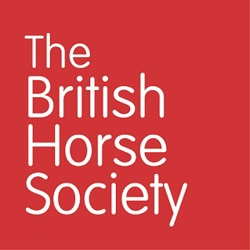Horses eat grass, so what’s the problem with feeding grass cuttings?
Unfortunately, grass cuttings are potentially very dangerous for horses to eat and sadly many have died as a result of people putting lawn mowings over the fence into horse pastures. The BHS continues to receive ongoing reports of horses being made extremely ill from this issue.
There are many concerns and dangers to horses if they eat grass cuttings and garden waste which can include:
- Risk of the horse choking
- Causing the horse to develop a potentially life-threatening stomach-ache known as colic
- Severe hoof pain which can also be life-threatening (known as laminitis)
- Poisoning from plants that are toxic to horses
- Risk of the horse ingesting any chemicals applied to the plants, such as anti-weed (herbicide) or anti-insect (pesticide)
Concerns and dangers to horses
Choke
chevron-down
chevron-up
As the grass cuttings have been finely chopped up, horses won’t need to chew as much or at all before swallowing the grass. This results in the horse gorging on the pile of cuttings and therefore eating large amounts very quickly. The cuttings can compact and become lodged in the horse’s throat, causing them to choke. Choke can potentially be very serious and distressing to the horse.
Extreme stomach problems
chevron-down
chevron-up
Grass cuttings can also cause the horse to develop a potentially life-threatening stomach-ache known as colic.
Cut grass doesn’t dry evenly and will have areas of wet clumps that ferment (which is why in hay-making the grass has to be turned). Due to the fermentation, it is likely that the cuttings feel warm to the touch, especially in the middle of a pile.
When the cuttings arrive in the stomach, they are already fermenting. This is bad news for horses, as in normal circumstances, grass and hay won’t start to ferment until it reaches much further along their gut as their stomach is not able to cope.
In the stomach, the grass cuttings release gas, causing it to expand and even rupture in some cases. Horses are unable to be sick or burp because the stomach has a one-way valve, so there is nowhere for the gas to be released.
Severe hoof pain
chevron-down
chevron-up
Grass cuttings can also cause a painful condition called laminitis which affects the very sensitive structures in the horse’s hooves. Horses need to have any changes to their diet made gradually over a couple of weeks. Suddenly being fed grass cuttings or other garden waste is a huge food change and poses a serious risk for horses.
Poisonous plants
chevron-down
chevron-up
There are many plants that are poisonous to horses. These could be mowed up along with the grass cuttings which may cause the horse additional harm. Depending on the plant, the range of problems include severe diarrhoea, liver damage, collapse or even death. Also, horses shouldn’t eat any chemicals applied to gardens, such as anti-weed (herbicide) or anti-insect (pesticide).
Be Horse Aware
Our Be Horse Aware message aims to spread awareness of the potential deadly consequences of feeding horses that are not your own so that we can all continue to enjoy the outdoors in a safe, responsible way. The British Horse Society urges members of the public not to feed horses which do not belong to you. Although feeding horses may seem harmless, your kindness may kill!





